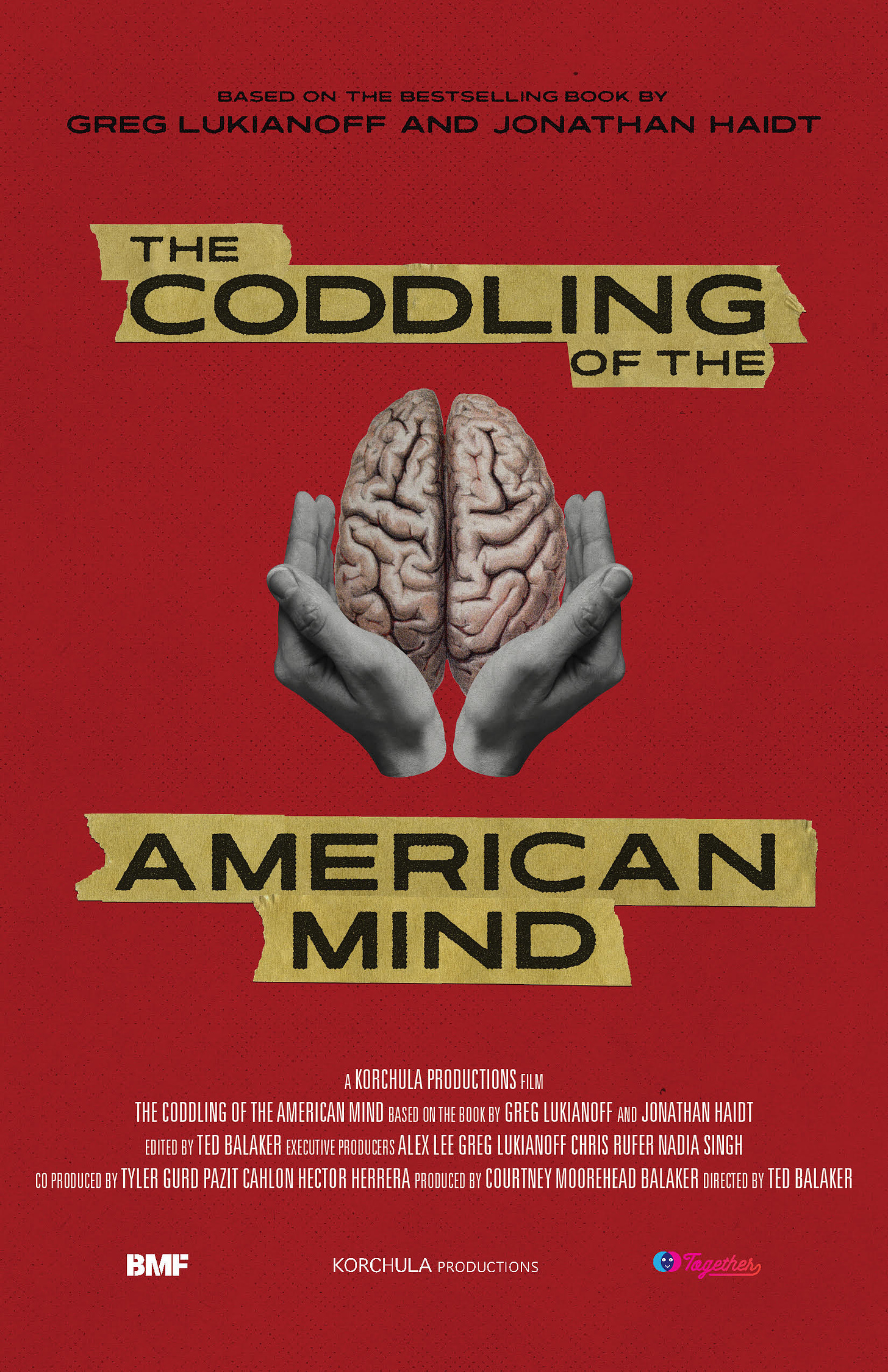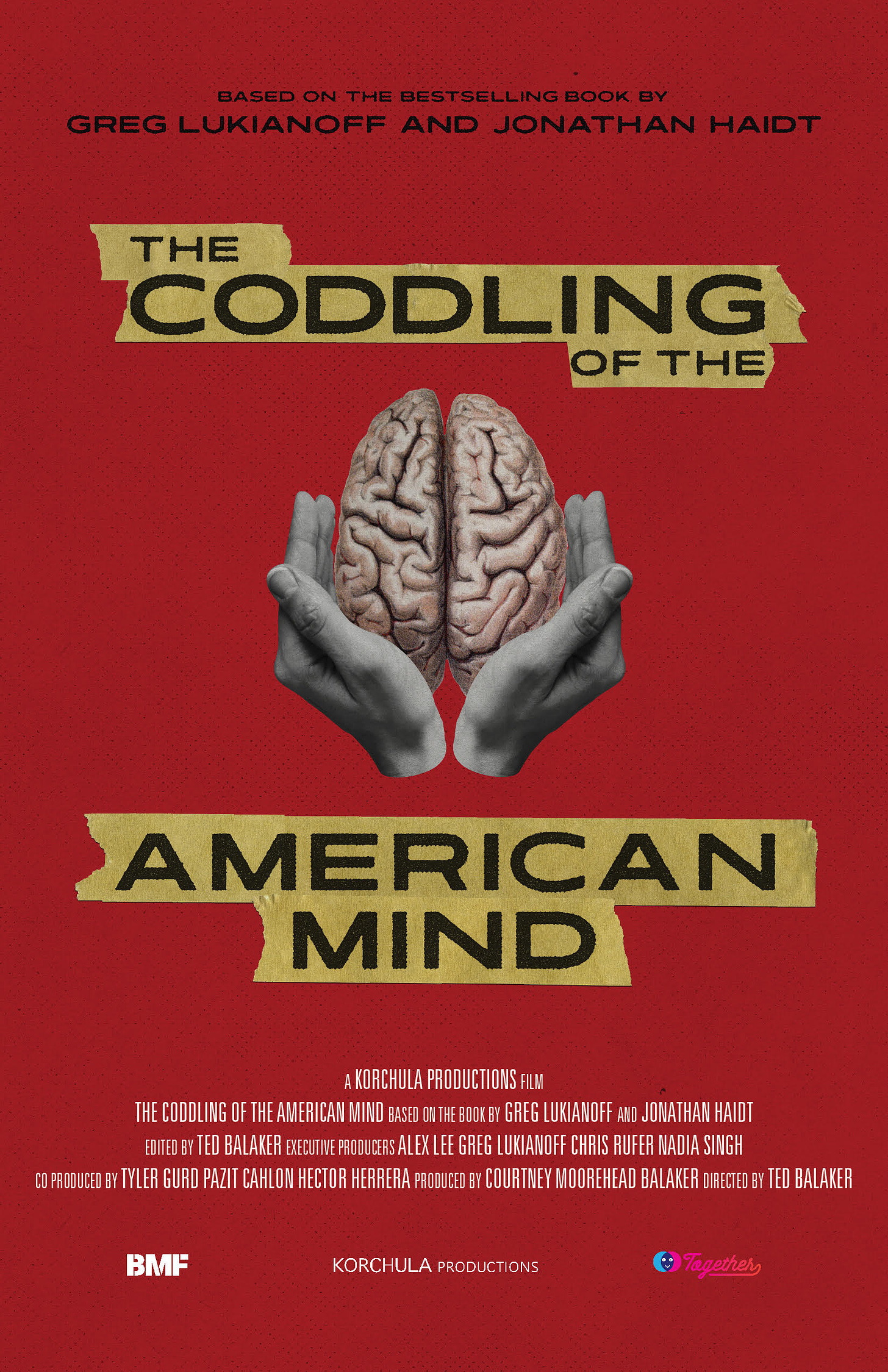Masterclass in Misery: Stanford Dean’s Speech Should Be Displayed at the Museum of What Not to Teach Students
But at least she inadvertently addresses a "Coddling" misconception
The studio executive disengaged from the meeting to do a quick Google search.
Although his team had invited our team to pitch the film project to him, he hadn’t read the book on which our project is based. He wasn’t sheepish about admitting that or admitting he had never heard of the book.
Had he even read our short synopsis, the one that sparked this pitch meeting?
I have no doubt that the executive is a very busy man, and our team appreciated the opportunity to meet with him and his associates. We realized that getting the greenlight from them would virtually guarantee that our film would be seen by a massive audience.
Still, was a little background knowledge too much to ask?
After all, the book on which our project is based is not some obscure tome. It remained on The New York Times bestseller list for nine weeks. And I know one of the most difficult things to do in Los Angeles is to get someone to read a book. Even a 100-page script in easy-on-the-eyes Final Draft format is a hard sell.
But if he didn’t have time to read the book, perhaps he could have read the Atlantic cover story on which the book was based.
It too attracted a flurry of media coverage and was referenced favorably by President Obama during a speech. It quickly became the second most read piece in the 166-year history of The Atlantic.
But if he didn’t have the time to read the cover story, why couldn’t he have at least watched a short interview with the authors or read our half-page synopsis?
But the executive at one of Hollywood’s most recognizable studios had not found time for any of that. Instead he relied on a quick in-meeting Google search to tell him what our project was about.
He looked up from his search and spoke: “So you’re saying kids are too soft.”
A couple years later we finished our film project without the involvement of the executive or his company.
I’m the director of the recently-completed, but not-yet-released feature documentary based on The Coddling of the American Mind by Greg Lukianoff and Jonathan Haidt .
The entertainment exec worried that a “suck it up, snowflake!” message would antagonize and alienate viewers. Perhaps, but that’s not the message of the film. Or the book. Or the cover story.
Countless readers, reviewers, and others understand that point, yet the “suck it up, snowflake!” misconception persits.
I’m quite new to the Coddling project, but Lukianoff and Haidt have been correcting the misconception since 2015.
Here’s how Lukianoff puts it in a recent tweet:


Yes, the C-word might invite some confusion, and I too would have preferred a different title. But even with the current title, a little focus goes a long way.
The first two words of the title—“The Coddling”— imply action. One group is coddling another group, and everybody knows “coddling” is a pejorative term.
Imagine a book called The Stabbing of the American Mind. It’d be obvious the authors weren’t blaming the people getting stabbed.
Now onto the subtitle of the real book: How Good Intentions and Bad Ideas Are Setting Up a Generation for Failure.
Not only is the group (Gen Z) receiving the action of coddling, Gen Zers are also being “set up” for failure.
Teenagers didn’t fall from the sky and land on college campuses filled with anxiety and depression. They were taught to be that way. By adults.
A recent campus eruption offers a valuable case in point.
Alex Morely of the Foundation for Individual Rights and Expression (where Lukianoff is president and CEO), sets the stage:
Last Thursday, federal judge Stuart Kyle Duncan visited Stanford Law School to talk to a Federalist Society chapter about "Covid, Guns, and Twitter." But he didn’t get to talk about any of that.
Instead, he experienced one of the most shocking exercises of mob censorship we’ve ever seen — and we’ve documented many cases of law students shouting down opinions they disagree with, so that says a lot [...]
Instead of Stanford clearing the room of hecklers after the sustained disruption, Associate Dean for Diversity, Equity, and Inclusion Tirien Steinbach took over the podium. First, she praised free speech and encouraged the students to let Duncan talk, but then quickly pivoted to criticizing the speaker, musing whether the “harm” caused by Duncan’s speech outweighs the value of considering his views. She wondered aloud whether Stanford should rethink its stance on free speech.
“Is the juice worth the squeeze?” she asked in prepared remarks. ”Is this worth it?”
In their book, Lukianoff and Haidt explore what they call Three Great Untruths. Here’s how Lukianoff describes them in our film:
We identified the three worst things young people are being taught and we call them the Three Great Untruths. The Three Great Untruths are just terrible advice to give to anybody.
They contradict ancient wisdom and modern psychology and common sense. If you practice the Three Great Untruths you can pretty much guarantee that you're going to be miserable.
I’m going to give Dean Steinbach the benefit of the doubt. Her biography reveals a variety of impressive accomplishments, and I’m not questioning her intentions. Like the Coddling subtitle, I will assume she has good intentions.
But the speech itself is a masterclass in misery. It should be placed in an installation at the center of the Museum of What Not to Teach Students.
Lukianoff and Haidt spell out the Three Great Untruths (and here I’ll use our shortened-for-film versions):
You Are Fragile
Always Trust Your feelings
Us vs. Them
You’ll find each of the Three Great Untruths in Steinbach’s speech (which you can read here).
Typically, adults teach the untruths indirectly, and that’s the case here. Steinbach does not explicitly tell students they are fragile, but she makes the point indirectly by implying they can be permanently harmed by words.
To her, Duncan isn’t just delivering a speech, he’s “tearing at the fabric of this community.” She asks, “[I]s it worth the pain that this causes and the division that this causes?”
She doesn’t explicitly tell students they should always trust their feelings, but she makes the point indirectly.
She often references how the episode makes her feel, and uses the word “uncomfortable” 10 times during her short speech.
According to her framing, feelings aren’t mere signals to our brain that may be true or false. She says Duncan’s speech feels “abhorrent” and “harmful,” and “literally denies the humanity of people.” (Of course, she does not specify how.)
She offers no explicit “Us vs. Them” distinction, but her framing implies it.
She and the students are on the side of Good, and Duncan is on the side of Evil. His speech is being shouted down by a mob, but he’s the one causing harm.
The protestors are here, she says, because they feel harmed by his words and deeds: “[Y]ou have power to make decisions that impact the lives of millions.”
Steinbach casts the students as comrades engaged in a noble struggle to become advocates. She casts herself as the judge who will determine whether Duncans’ words are worthy of their audience:
Do you have something so incredible important to say about Twitter and guns and COVID that is worth this impact on the division of these people who have sat next to each other for years, who are going through what is the battle of law school together so that they can go out into the world and be advocates? … Is this worth it? And I hope so, and I'll stay for your remarks to see.
Universities and DEI administrators enforce ideological conformity, but to her Duncan is the intolerant partisan:
And I hope, if you learn anything … you can listen through your partisan lens, your hyper-political lens and just look and see human beings who are asking you to take care, and like all guests on our campus, we ask that you come with good intentions and respect.
Take off the partisan lens? Come with good intentions? If only Steinbach and the protestors would take that advice.
Part of what’s remarkable about Steinbach’s speech is how unremarkable it was. It might have been delivered by any one of the countless associate deans for diversity, equity and inclusion on American campuses.
And Steinbach’s worldview spreads far beyond the DEI domain. It suffuses nearly every aspect of the modern university. It’s hard to avoid it.
Does this latest campus eruption offer any silver linings? I see at least two.
Stanford actually apologized to Duncan.
And Steinbach’s speech provides a concise example of how adults on campus and off are teaching students to be miserable.
Ted Balaker is a filmmaker, and former network newser and think tanker. His recent work includes “Little Pink House”starring Catherine Keener and Jeanne Tripplehorn, “Can We Take a Joke?” featuring Gilbert Gottfried and Penn Jillette, and a forthcoming feature documentary based on the bestselling book, “The Coddling of the American Mind,” by Greg Lukianoff and Jonathan Haidt.





